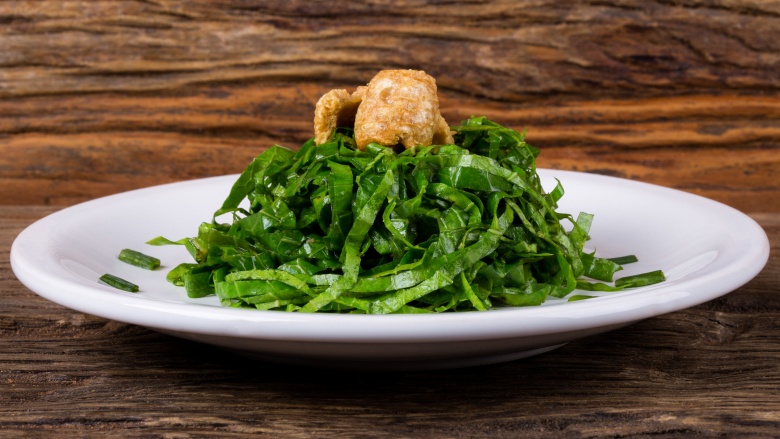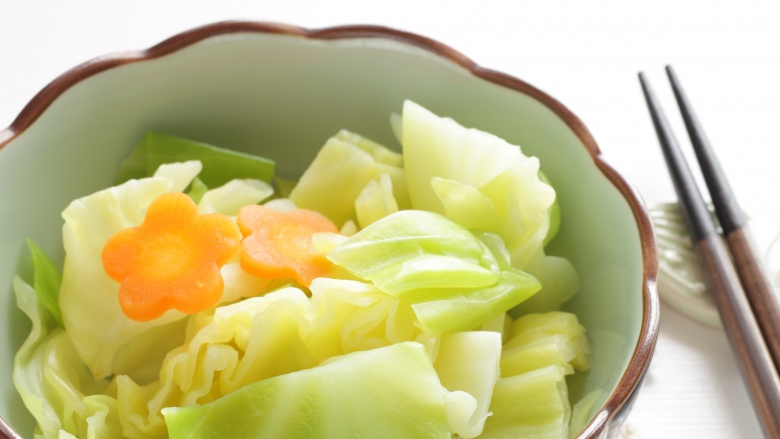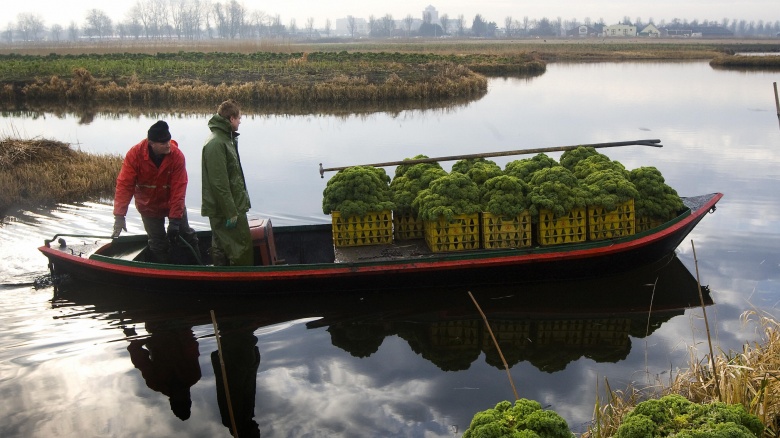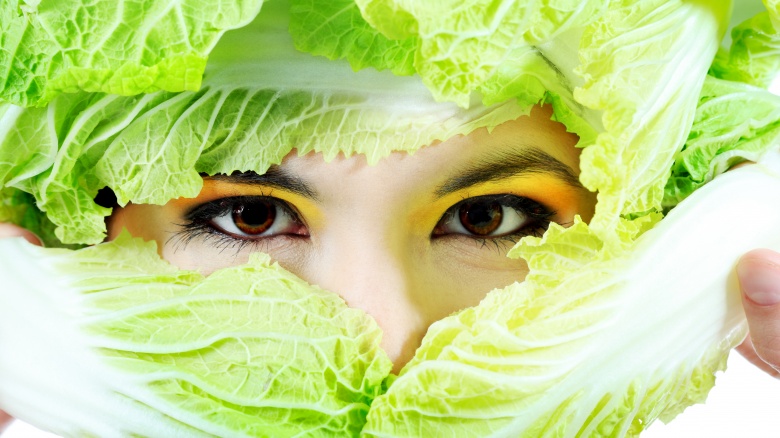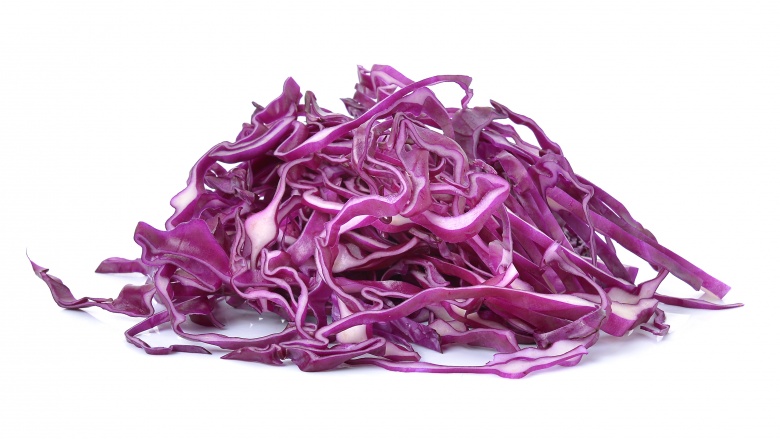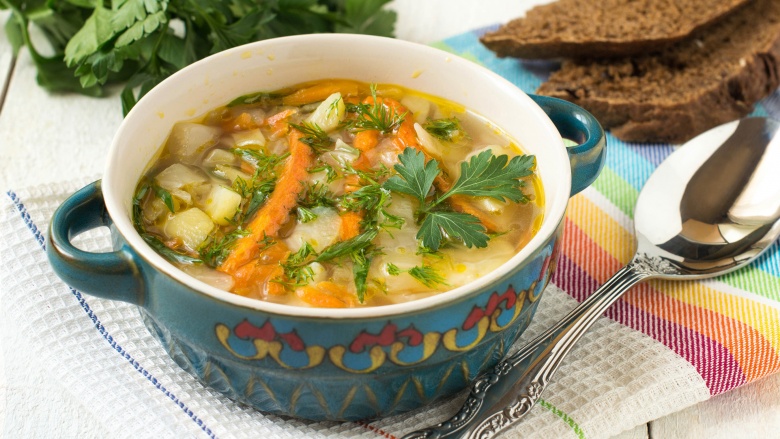Reasons To Make Cabbage Your New Go-To Food
If you haven't been paying attention recently, you might be one of those people who think cabbages are only good for being boring and giving you gas ... and you would be wrong. While it's true that cabbage can encourage a little extra wind every now and then, after reading this, you might be more inclined to think of it as a celebratory fanfare for your new-found favorite veg. Here are a few reasons you should be eating more cabbage.
Good for dieting
The simplest argument in favor of eating more cabbage — and probably the one most likely to persuade you — is the fact that cabbage is killer diet fodder. Plunk a hunk of this in your stew and you'll discover a filling, tasty, low-calorie, zero-fat addition to your meal. A single cup of raw cabbage contains just 22 calories, which means you can eat as much as you like without doing any harm. It will help make you feel full without any guilt, and because its flavor is so subtle, it won't do a kale prima donna routine and try to get to the front of the flavor profile. It's nothing short of the dietary wingman of your dreams.
Steamed cabbage will lower your cholesterol
Not content with helping you lose weight, Cabbage Inc. is now branching out and aiming for your cholesterol. The secret behind this magic trick is the large amounts of soluble fibre and phytosterols that cabbage contains, both of which prevent your digestive system from absorbing cholesterol. Steamed cabbage has the most effect on cholesterol, and leads nicely into the following metaphor: Cholesterol is the drunk frat boy of the dietary world, because both only lower the tone of any party they attend. Phytosterols, however, are the loud drunk frat boys of the dietary world, which might seem like a bad thing, but in this instance it's not. Whenever cholesterol tries to get into a party (AKA your body), phytosterols cut in front of them in the line, and because they are loud and easy for your body to spot, most of them — and the cholesterol along with them — are refused entry. All this adds up to a slightly overworked metaphor, but also much less cholesterol in your system.
Good for long sea journeys...and other kinds of movement
If you're planning to go on a long sea voyage in the near future, you'd be wise to take a few cabbages with you. Scurvy is caused by a lack of vitamin C in the diet, and is most famous for afflicting sailors in the 18th century. However, it still occurs today in people suffering from malnutrition. Cabbage, along with kale and broccoli (its siblings in the cruciferous family), contains high levels of vitamin C. In fact, just two cups of raw chopped cabbage will provide you with over 100 percent of your daily vitamin C requirement.
As previously mentioned, cabbage contains a lot of fibre which, apart from helping you feel full and reducing cholesterol, also has another (slightly awkward to explain) benefit. Simply put, it helps you ... "go." Which is good news for anyone who lacks a regular daily "routine," and spends their days feeling bloated and moody. So, next time you've taken your Napoleonic cosplay a touch too far, beat the scurvy and the slow "movements," by eating cabbage—it'll put the wind in your sails.
All the beta to see you with
The wolf in Little Red Riding Hood probably ate more cabbage than Little Red Riding Hood. That's because, while the diminutive wearer of the red garment had a fair amount of trouble seeing that her "grandma" was actually a wolf while standing in the same room, the wolf had no such troubles. If Red Riding Hood had eaten more cabbage, she would have benefited from the high levels of beta-carotene that it contains. Beta-carotene is used by the body to make vitamin A, which is good for a bunch of stuff, but especially the eyes. In older people, it can help prevent macular degeneration and other age-related issues, and in younger people it can help prevent embarrassing situations, like eyeglasses at a young age or confusing your grandma for a very hungry wolf.
Good for hearts and minds ... and not bleeding
Cabbage contains an astonishing amount of vitamin K — in fact, over half of your daily recommended dose can be obtained from a single cup of the stuff when eaten raw. And if you're particularly attached to your heart, not bleeding out of your heart, or even thinking about your heart, then this is the stuff for you. Vitamin K is stored by the body in fatty tissue, and gets dragged out again when the liver needs to create clotting factors (useful if you cut yourself), improve brain function, and reduce the buildup of minerals in your arteries (good for blood pressure and not having a heart attack). Even though this magical vitamin is stored in the body, no dangerous level has been found, meaning you can eat all the cabbage you want, without risk of overdose.
Fights cancer
Cabbage has still more impressive powers over your body than just weight loss and bathroom timetables, and this time it's really serious. Big-C serious. Yes, it's true — cabbage helps fight cancer. Like a small, green, well-chewed superhero, cabbage is capable of deploying swarms of antioxidants and other cancer-fighting compounds that reduce carcinogens and inhibit tumor development. Studies of the differences between East and West Germany, shortly after reunification, showed that although people in the former East Germany were more likely to be overweight, eat more fat, and eat fewer fresh fruits and vegetables, for some types of cancer their rates were dramatically lower than their cousins in West Germany. The study also found out that those same people ate dramatically more cabbage — forty times more in fact — than their West German counterparts. Despite its amazing potential, it's probably safe to say the East Germans were well and truly bored of eating cabbage. And perhaps that's a price we should be willing to pay too ... unless you've got a decent cabbage cook book, as we all should.

